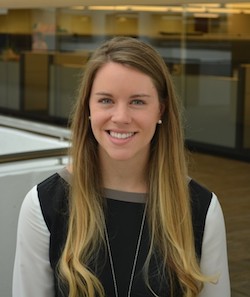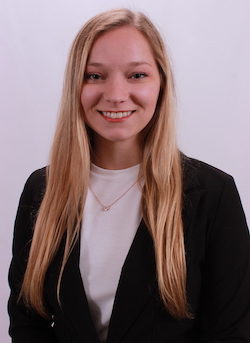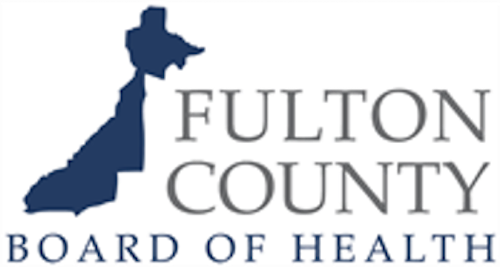Emory EPI Responds: Students at the Fulton County Board of Health
Category : #WeAreEmoryEPI
As usual, Emory EPI students have been hard at work this summer applying many of the lessons learned from their epidemiology methods courses and honing their analytical skill sets in action. However, with the ongoing COVID-19 pandemic and the precipitous rise in cases throughout the United States, many students have seized the opportunity to immerse themselves in frontline public health work. Our students are leveraging their knowledge and experience, and utilizing them to contribute to real-time COVID response and monitoring, in many different capacities and with numerous organizations.
The Department of Epidemiology and the Confounder team are excited to showcase the exceptional work students are doing locally to respond to COVID and support communities during this time in a new #WeAreEmoryEPI series. Throughout this series we will be highlighting groups of students contributing to these efforts in unique ways, including: students working with the Fulton County Board of Health’s COVID pandemic response on teams led by Emory faculty, Drs. Neel Gandhi, Sarita Shah, and Allison Chamberlain; the outbreak response team conducting COVID testing and education activities in Hall County led by Dr. Jodie Guest; a student group that has organized personal protective equipment distribution at Black Lives Matter rallies and protests in Atlanta; a student led COVID journal club; and more to come.
For our first feature in this series, we spoke with three of the Emory EPI students working with the Fulton County Board of Health (FCBOH) COVID response efforts. These students are directly engaged in front line epidemiology work, employing analytic and communication strategies to understand COVID’s impact on the local community and put together reports for the public. The students’ work has been greatly appreciated by faculty and the FCBOH team, and their work has received some much deserved recognition from Mayor Keisha Lance Bottoms, who recently tweeted several graphs produced by current EPI students and Emory EPI alumni in a recent Fulton Epi report.
This week we spoke with Carol Liu, Maret Maliniak and Dallas Rohraff about their experiences working with FCBOH.

Carol Liu 
Maret Maliniak 
Dallas Rohraff
Middle: Maret is a rising third year PhD student, she received her MPH from Rollins in 2014, served as a clinical research coordinator at Emory’s adult cystic fibrosis clinic, and worked at the American Cancer Society then returned to Rollins to start her doctorate.
Right: Dallas is a second year of Global Epidemiology student, she studied Cellular and Molecular Biology at Grand Valley State University then worked in a medical research lab focused on autoimmune diseases at the University of Michigan before starting her MPH.
This summer Carol, Maret, and Dallas have played impactful roles supporting response teams of diverse public health actors, FCBOH epidemiologists, research staff, and Emory faculty and students. This has given them the opportunity to work in a fast paced environment, applying epidemiological methods in real-time analyses to respond to the ever-changing needs and challenges that arise in pandemic response. While many of their efforts have revolved around data collection, analytics, and surveillance activities, their work with FCBOH has underscored the importance of community engagement and the need for public health professionals to ground their work in the perspectives and experiences of the communities they seek to serve.
Q: Tell us about the team you have been working with this summer and what your role has been in the Fulton County’s response efforts.
Carol: About half of my work is dedicated to conducting case investigations. The other half is dedicated to producing analytics for Fulton County that describes trends in epidemiology of COVID-19 and key data-generating processes within the surveillance system. Recently, key information we’ve presented to the county is the changing age, race and geographical distributions among positive cases, somewhat parallel to national shifts. While information on the epidemiology of COVID-19 has received widespread scientific and media attention, information on the data-generating process itself can answer questions such as “what is the time delay between symptom-onset and the state receiving a case notification”, and is often important and valuable for the public health response.
Maret: I have had the pleasure of working with a group of highly motivated and driven students and staff from Emory and the Fulton County Board of Health led by Drs. Neel Gandhi, Sarita Shah, and Allison Chamberlain. I have had a small but important role conducting case investigations for those who have tested positive for SARS-CoV-2 in Fulton County.
Dallas: I have been fortunate to be able to work remotely on a revised version of my APE, which originally included traveling to South Africa to conduct monitoring and evaluation of a TB transmission research study. I now split my time between this project and working with the FCBOH on their COVID-19 response. I conduct case investigations for the county and have recently joined the Emory and Fulton County Board of Health Data Analysis and Visualization Team. Both of these projects are comprised of many individuals from different areas in public health. Working on this diverse team has allowed me to strengthen my skills and explore many facets of epidemiological work in a professional setting.
Q: What do you enjoy most about the work you’re doing?
Carol: One of my favorite parts of the work is calling potential case contact, or persons under investigation (PUIs). It’s rare that I get to interact directly with the individuals served by our public health systems. Calling PUIs and speaking to individuals who have been personally affected by the epidemic has placed a face and humanity to the numbers I’m often tasked to crunch.
Maret: While COVID-19 has been devastating for so many and the case interviews can be difficult at times, I really enjoy doing them and being part of this process. They give you an insight into people’s experiences that you just can’t get from looking at data alone.
Dallas: Calling patients has been very grounding for me and provided me with the unique chance to better understand the public’s perspective on COVID-19. I am grateful for the opportunity to work with the FCBOH this summer. It not only has allowed me to build upon my skills in a professional setting, but also provided me with an opportunity to directly contribute to the public health efforts related to the pandemic.
Q: What have been some of the most interesting or challenging moments that you’ve experienced working on the response efforts?
Carol: Having worked extensively in global health, it’s certainly a change to be involved in a frontline so close to home. The opportunity to learn first-hand about the pieces that form the local-level response to a pandemic in the US has been invaluable for me. At the beginning, one of the challenges was understanding the needs of FCBOH to ensure our work would be synergistic with existing work and capacity at FCBOH.
Maret: I learn something interesting and have challenges every day I do calls, so it is hard to narrow it down. I have heard heartbreaking stories of how this disease can spread among multiple family members with some recovering quickly and others being hospitalized and fighting for their lives on a ventilator. I have also had people express their frustration at the response and demand that more be done. And then of course there are many who do not answer the phone or hang up when they hear why I’m calling, so we’re always facing challenges of incomplete data and how we can better reach people to get these important data.
Dallas: Working on the local response with FCBOH has taught me that one of the biggest challenges we face is the rapidity at which the response efforts must adapt. As the pandemic progresses and we learn more, we need to ask new research questions, adjust to different policies and procedures, maintain thorough data collection in light of new information, and more. We are constantly faced with new challenges that cause us to adjust our work to provide help where FCBOH needs it the most. I have learned the significance of being flexible, adaptable, and inquisitive as a public health student and future professional.
Stay tuned for our next feature in this series as we continue to showcase the exceptional work our students are doing putting their skills to use on the frontlines of today’s public health challenges.
